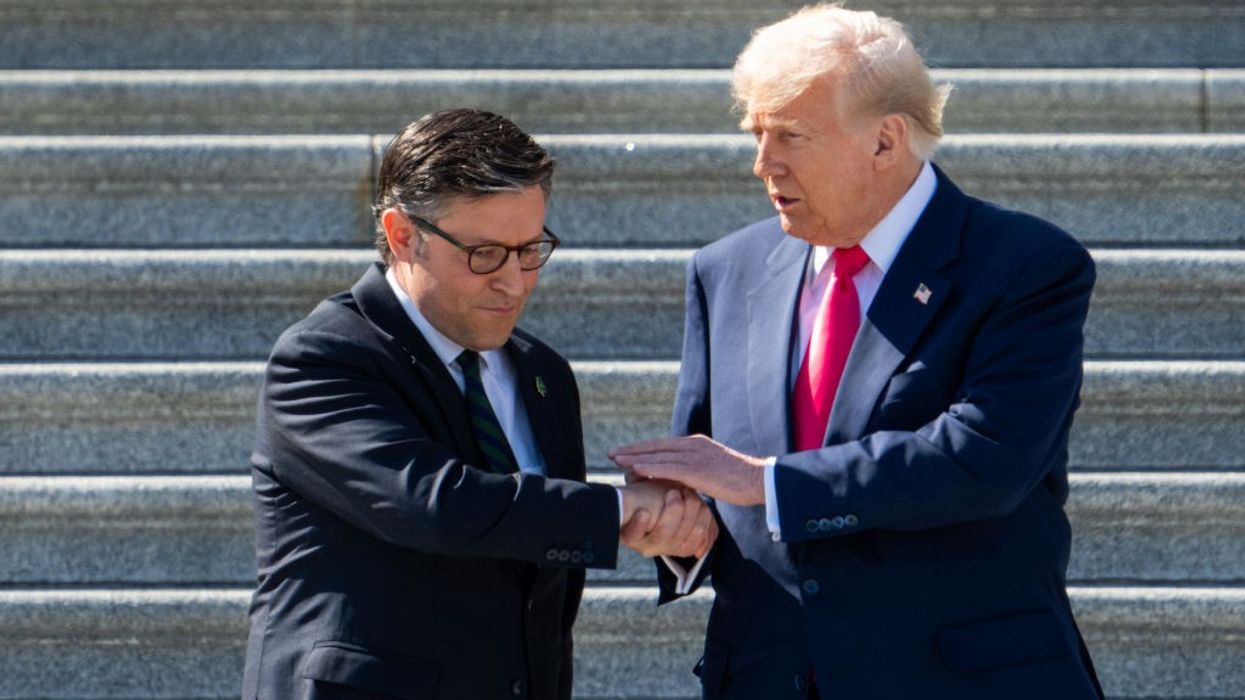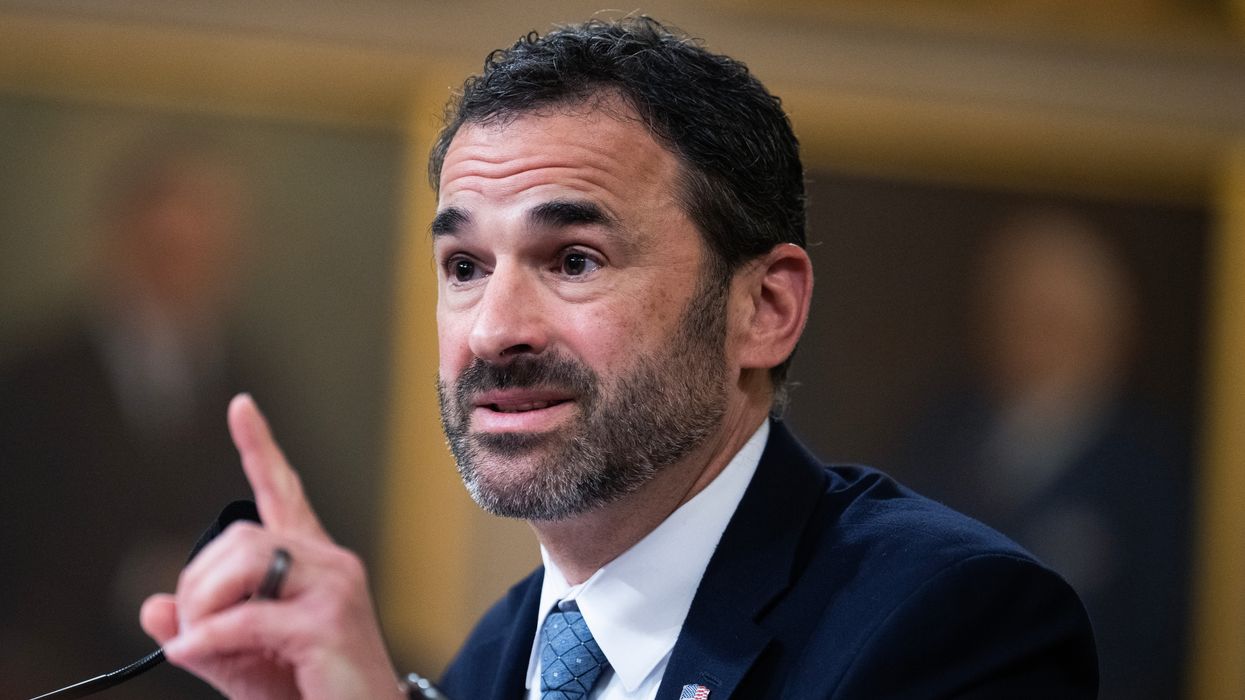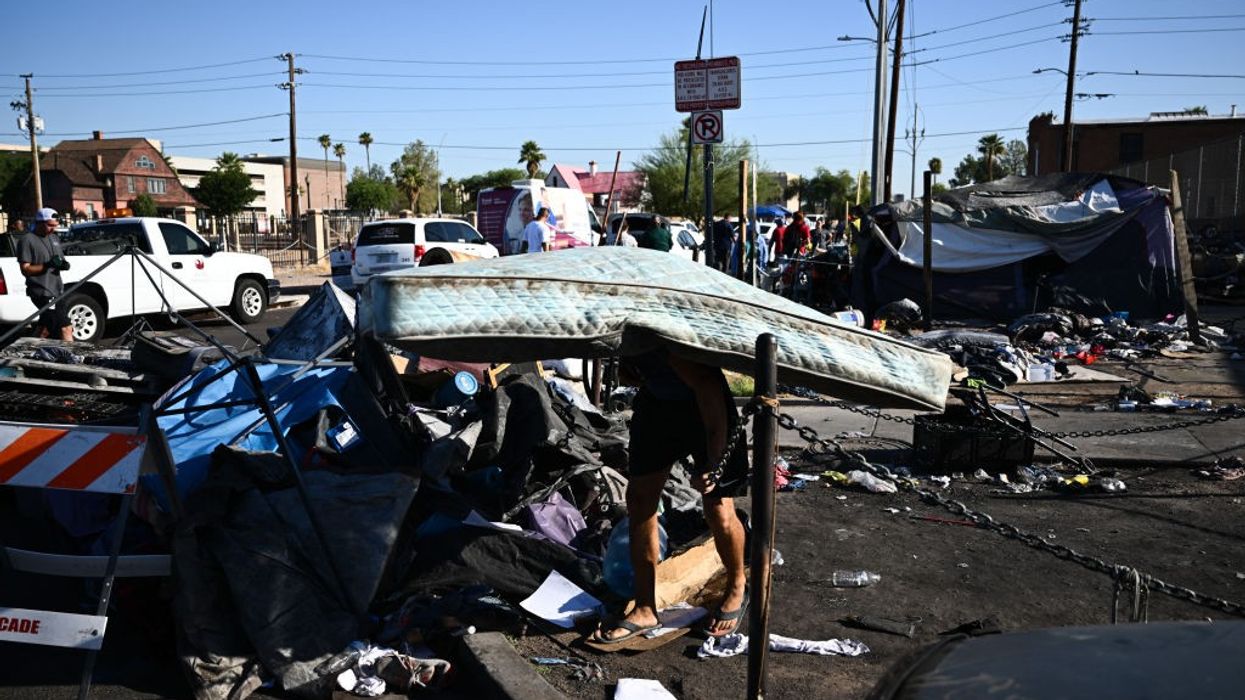'We Have Been Working Against That': Trump and Johnson Dump Cold Water on Millionaire Tax Hike
"We fully expect Republicans to once again sacrifice everything and everyone at the altar of tax cuts for their ultra-wealthy benefactors at the expense of working people," said one progressive campaigner.
U.S. President Donald Trump indicated in an interview published Friday that he's unlikely to push congressional Republicans to include a tax hike on millionaires in their sprawling reconciliation bill, saying he doesn't "want it to be used against me politically."
Trump's comments to TIME magazine came a day after he told reporters in the Oval Office that raising the statutory income tax rate on people who earn more than $1 million a year would be "very disruptive, because a lot of the millionaires would leave the country." (The notion of millionaire tax flight, often cited by Republicans as a reason not to raise taxes on the rich, has been repeatedly debunked.)
In recent weeks, pro-Trump figures such as former White House chief strategist Steve Bannon and a small number of Republicans in Congress have floated the idea of slightly raising income taxes for millionaires, suggesting the move would help counter progressive attacks on Trump and his billionaire-stocked Cabinet as a manifestation of the United States' descent into oligarchy.
"This guts the AOC-Bernie 'oligarchy tour,'" Bannon told The Washington Post earlier this week. "Politically, it's game, set, match—it's a no-brainer. This would destroy the Democrats."
But Trump told TIME that he's concerned about political backlash stemming from any tax increase on millionaires, even as he acknowledged it "doesn't make that much of a difference" to the rich.
"I would be honored to pay more," said Trump, whose organization was convicted in 2022 of a long-running tax fraud scheme. "But I don't want to be in a position where we lose an election because I was generous."
House Speaker Mike Johnson (R-La.) told Fox News earlier this week that he "would not expect" a millionaire tax hike to wind up in the GOP reconciliation package, which is expected to extend the 2017 Trump-GOP tax breaks and enact an additional $1.5 trillion in tax cuts—paid for in part by slashing Medicaid, federal nutrition assistance, and other programs.
"We have been working against that idea," Johnson added. "I'm not in favor of raising the tax rates because our party is the group that stands against that traditionally."
"The real thing that's going on here is that Republicans are feeling the pressure of our messaging. They're cutting basic service programs like Medicaid and SNAP to give tax cuts to billionaires."
Proposals floated by Republican lawmakers and discussed in Trump's inner circle in recent days include allowing the top marginal tax rate to revert to 39.6%—the level prior to enactment of the 2017 tax cuts—next year and establishing a new top marginal rate of 40%, which would do nothing to tax mega-billionaires like Elon Musk, whose wealth is mostly stock that's only taxed when sold.
The millionaire tax hike proposals have drawn vocal opposition from big business, with the U.S. Chamber of Commerce—the nation's largest corporate lobbying group—joining a recent letter rejecting any proposed tax increase on millionaires.
David Kass, executive director of Americans for Tax Fairness, told Common Dreams in an interview Friday that "even if they did put something like this in" the final reconciliation package, "it's really important to remember that the bill would still be overwhelmingly skewed to the rich."
"The real thing that's going on here is that Republicans are feeling the pressure of our messaging," said Kass. "They're cutting basic service programs like Medicaid and SNAP to give tax cuts to billionaires."
Morris Pearl, chair of the Patriotic Millionaires, told Common Dreams in an emailed statement that "while we are supportive of efforts to raise the income tax rate on millionaires, if past behavior is the best predictor of future behavior, we'll believe Republicans are serious about protecting working people from an unfair tax burden when we see it."
"As they prepare their bill for an early summer passage," said Pearl, "we fully expect Republicans to once again sacrifice everything and everyone at the altar of tax cuts for their ultra-wealthy benefactors at the expense of working people."


